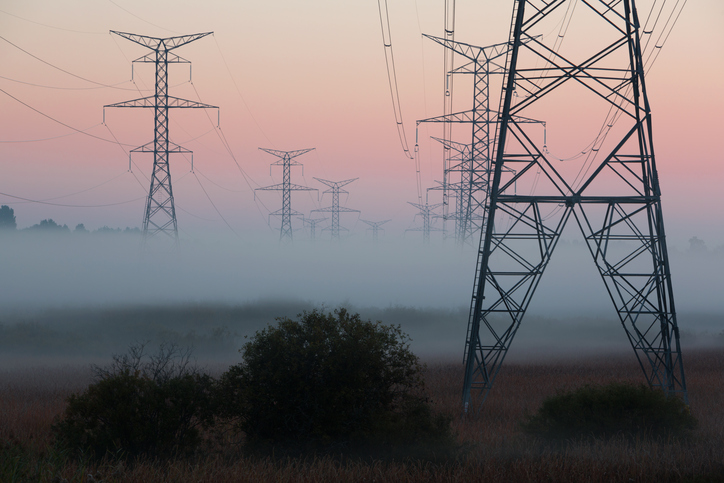The Labour Party has unveiled major plans to renationalise the UK’s entire electricity and gas system, claiming that the current system is not fit for purpose.
Having witnessed its plans leaked ahead of schedule, Labour has today published the full proposals which would see Labour immediately renationalise the country’s transmission and distribution grids through an act of parliament, compensate current owners with bonds, and replace network companies with National and Regional Energy Agencies.
The proposals amount to a radical rethink of the country’s energy system and would place decarbonisation at its heart, establishing more ambitious renewable energy targets and tasking local communities with the creation of smart, low carbon, regional power systems.
However the plans have been strongly attacked by the country’s network companies.
The plans would see the establishment of a National Energy Agency (NEA), which would own and run high voltage transmission systems across the UK. It would also regulate the energy system, set regional decarbonisation targets and ensure a national skills and workforce planning system is in place.
The NEA would be handed a target of ensuring that 60% of all energy originates from low carbon or renewable sources by 2030 – a target which is likely to be considered as highly ambitious – while overseeing the rollout of EV charging infrastructure and a network of energy storage capacity.
A further 14 Regional Energy Agencies would then be put into place to own electricity and gas distribution networks across the country, and they would retain responsibility for decarbonisation, tackling fuel poverty and driving regional industrial strategies
Municipal Energy Agencies would then be created to own and operate local distribution and energy supplies, while local energy communities would be tasked with the development of local renewables and microgrid operations.
Full details of how the agencies would align and operate can be seen within the strategy, published here.
Immediate nationalisation
The document states that the entire UK energy distribution and transmission would be brought into public ownership “immediately”, with a process of transforming network companies into “nested, participatory, transparent institutions” to be achieved over the course of Labour’s first term in power.
Labour would use regulatory powers and processes similar to that used to bring failed bank Northern Rock under national control. Significantly, network company assets would be nationalised through an Act of Parliament, with former owners compensated through a bond issuance by the Treasury.
However there will be allowances for deductions to be made from those compensation packages to take into account what Labour has billed “asset stripping since privatisation”, as well as the state of repair of those assets. This opens the door for investors to receive less than market value.
The NEA would be established on the same institutional base of National Grid and Ofgem, and would assume its capacities, resources and skills. Civil servants would be transferred from Ofgem, while staff working for networks companies would be transferred under TUPE regulations.
Senior executives, however, would see their roles re-advertised on reduced salaries, capped at the party’s party’s 20:1 pay ratio policy, which states that the highest paid member of staff can be paid no more than 20 times that of the lowest paid member of staff.
The document itself highlights a number of areas that Labour puts forward as rationale for the move, chiefly ensuring a better deal for the public. It cites Citizens Advice’s study into network company profits which claimed that they had returned billions of pounds in “unjustified” profits to shareholders, an issue which Labour suggests is the attributable to failures by industry regulator Ofgem.
It also claims that network companies have failed to properly invest to tackle climate change, and that bringing them under national control would lead to a more democratic control of a strategic resource and more equitable decentralisation in the UK.
Jeopardising investment
In a foreword, shadow energy minister Rebecca Long Bailey writes that while the energy sector is vital to the country’s decarbonisation plans, networks are “poorly placed” to respond to the task at hand.
“Since Thatcher’s wave of privatisations, energy network companies have been able to post huge profit margins, overcharging customers to the order of billions of pounds, and failing to invest properly in infrastructure needed to accommodate the transition to renewable energy,” she writes.
But David Smith, chief executive at the Energy Networks Association, issued a strong rebuke to Labour’s proposals, arguing that they would not only fail to deliver on the party’s own objectives, but be “extremely costly” to the British public.
“Under state ownership the energy networks were more expensive and less reliable. Since privatisation in 1990 network costs to the bill-payer have fallen by 17%. At the same time that costs have fallen, reliability has improved: the public have experienced 60% fewer power cuts while their length has been reduced by 84%.
“Over £100 billion of investment has been delivered by network companies since privatisation. In the last six years alone, they have invested over £22 billion in their gas and electricity grids across the country and provide jobs for 36,000 people, while the UK is now ranked globally seventh by the World Bank for ease of getting electricity. This vital investment could all be jeopardised with these plans,” he said.





